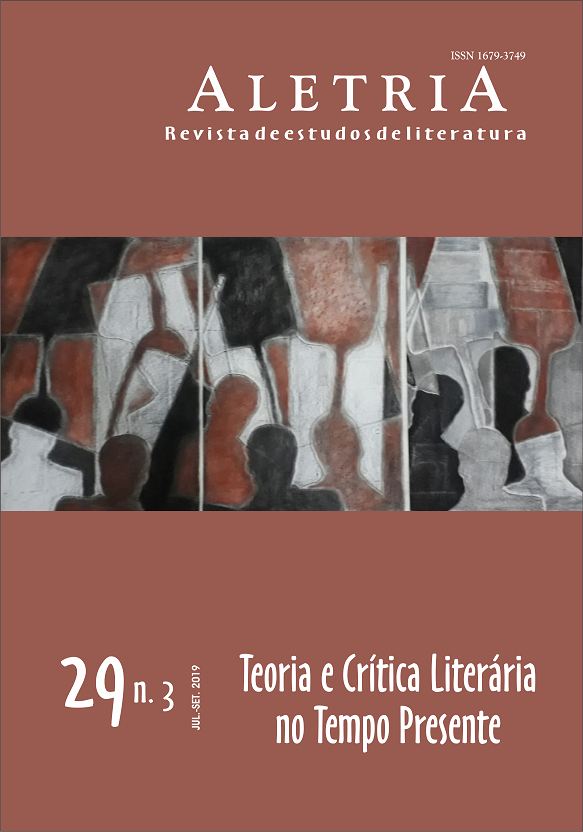Layers of Lessons in Roman Didactic Poetry: “Obvious Matter” and “Real Themes” in the Georgics and Cynegetics
DOI:
https://doi.org/10.17851/2317-2096.29.3.307-324Keywords:
didactic poetry, teaching, Virgil, NemesianAbstract
In this article we intend to focus on the way two didactic poems in Latin literature organized the layers of lessons incorporated into their verses. These poems are Virgil’s Georgics (1st century B.C.E.) and Nemesian’s Cynegetics (3rd century C.E.). Based on the ideas of Bernd Effe (1977), who postulated that “transparent” didactic poems incorporate their “obvious matter” and “non-obvious themes” keeping them separated, we will try to show that these matters coexist inside both the texts of the Georgics and the Cynegetics (agronomy and hunting) with different themes, which are, in fact, placed more at the core of their authors’ pedagogical concerns.
References
ANDERSON, John Kinloch. Hunting in the ancient world. Berkeley: University of California Press, 1985.
ANDREAU, Jean. L’économie du monde romain. Paris: Ellipses, 2010.
DALZELL, Alexander. The criticism of didactic poetry: essays on Lucretius, Virgil and Ovid. Toronto: The University of Toronto Press, 1996. DOI: https://doi.org/10.3138/9781442673601.
EFFE, Bernd. Dichtung und Lehre: Untersuchungen zur Typologie des antiken Lehrgedichts. Munchen: C. H. Besck’sche Verlagsbuchhandlung, 1977.
GAGLIARDI, Paola. Virgil’s ambivalence towards Octavian. Acta Antiqua Hungarica, Budapest, v. 55, p. 457-468, 2015. DOI: https://doi.org/10.1556/068.2015.55.1-4.31.
GALE, Monica. Virgil on the nature of things: the “Georgics”, Lucretius and the Didactic tradition. Cambridge: Cambridge University Press, 2000. DOI: https://doi.org/10.1017/CBO9780511482182.
GRATTIUS. Cynegeticon. In: PUBLILIUS SYRUS et alii. Minor Latin poets. Translated by J. W. Duff and A. M. Duff. Cambridge, Mass./London: Harvard University Press, 1982, p. 143-208. v. I.
HADOT, Pierre. Qué es la filosofía antigua? Tradução de Eliane Cazenave Tapie Isoard. México: Fondo de Cultura Económica, 1998.
JALLET-HUANT, Monique. La chasse dans l’Antiquité romaine. Paris: Éditions de Montebel, 2008.
NEMESIANUS. Cynegetica. In: FLORUS et alii. Minor Latin poets. Translated by J. W. Duff and A. M. Duff. Cambridge, Mass./London: Harvard University Press, 1998, p. 484-512. vol. II
PLINY. Epistularum Libri duo. With introduction, notes, and plan, edited by Janes Cowan. London: Macmillan, 1889.
TOOHEY, Peter. Epic lessons: an introduction to ancient didactic poetry. London/New York: Routledge, 1996.
TREVIZAM, Matheus. Figurações poéticas da vida rural nas “Geórgicas”. Nuntius Antiquus, Belo Horizonte, v. 14, n. 2, p. 125-153, 2018. DOI: https://doi.org/10.17851/1983-3636.14.2.125-153.
VARRÃO. Das coisas do campo. Campinas: Unicamp, 2012.
VIRGIL. Georgics. Edited with a commentary by R. F. Thomas. Cambridge: Cambridge University Press, 1988. v. I, books 1-2.
VIRGILE. Bucoliques. Texte établi et traduit par Eugène de Saint-Denis. Paris: Les Belles Lettres, 2002.
VIRGILE. Géorgiques. Texte établi et traduit par Eugène de Saint-Denis. Paris: Les Belles Lettres, 1998.
WEEDA, Leendert. Vergil’s political commentary in the “Eclogues”, “Georgics” and “Aeneid”. Berlin/New York: De Gruyter, 2015. DOI: https://doi.org/10.1515/9783110426427.
WILKINSON, L. P. The “Georgics” of Virgil: A Critical Survey. Norman: University of Oklahoma Press, 1997.
Downloads
Published
Issue
Section
License
Copyright (c) 2019 Matheus Trevizam (Autor)

This work is licensed under a Creative Commons Attribution 4.0 International License.
Authors who publish with this journal agree to the following terms:Authors retain copyright and grant the journal right of first publication with the work simultaneously licensed under a Creative Commons Attribution Non-Commercial No Derivatives License that allows others to share the work with an acknowledgement of the work's authorship and initial publication in this journal.Authors are able to enter into separate, additional contractual arrangements for the non-exclusive distribution of the journal's published version of the work (e.g., post it to an institutional repository or publish it in a book), with an acknowledgement of its initial publication in this journal.Authors are permitted and encouraged to post their work online (e.g., in institutional repositories or on their website) prior to and during the submission process, as it can lead to productive exchanges, as well as earlier and greater citation of published work (See The Effect of Open Access).





